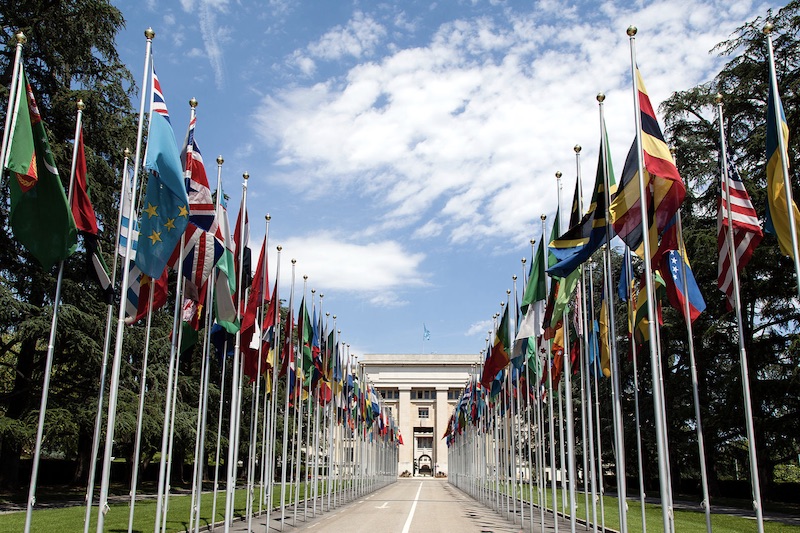Michigan Governor Signs Ban on Conversion Therapy
Measure builds upon past executive order prohibiting taxpayer funds from reimbursing therapists engaging in sexual orientation change efforts.

Michigan Democratic Gov. Gretchen Whitmer has signed two bills into law banning the use of so-called conversion therapy — also referred to as reparative therapy or therapy targeting “same-sex attraction” — on minors in the state.
With Whitmer’s signature, the Wolverine State becomes the 22nd state in the nation to ban the practice, which seeks to curb a person’s sexual desires or impulses through a variety of physical or mental techniques, with some practitioners claiming that such techniques will result in ridding a person of their same-sex attraction or transgender identity.
The measure builds upon a 2021 executive order issued by Whitmer prohibiting the use of state or federal funds, including Medicaid dollars, are not used to reimburse practitioners of conversion therapy. Five other states — four with Democratic governors — currently have such prohibitions in place.
“As a mom of a member of the community and a proud, lifelong ally, I am grateful that we are taking action to make Michigan a more welcoming, inclusive place,” Whitmer said in a statement, accordng to the Detroit News. “Let’s continue working together to ensure anyone can ‘make it’ in Michigan, expand fundamental freedoms and fight back against any and all forms of discrimination.”
The types of techniques used in conversion therapy can run the gamut from more severe forms, such as electroshock therapy, induced vomiting or the infliction of physical discomfort as a form of “aversion therapy” to less severe forms such as talk-based therapy, in which a therapist may encourage patients or clients to conform to Biblical standards of morality or a specific set of religious beliefs.
While proponents and opponents of conversion therapy agree that sexuality can be fluid over time and that gender-nonconformity alone is not indicative of either sexual orientation or gender identity, critics of conversion therapy claim that therapists engaging in such practices falsely hold them out as a “cure-all” that will completely eradicate a person’s naturally-occurring same-sex attraction, despite overwhelming medical evidence that such techniques are largely ineffective in achieving such goals.
Under the ban, physicians, psychologists, licensed nurses, counselors, social workers, and therapists are prohibited from subjecting minors to conversion therapy in their professional capacity or in exchange for compensation. Those who violate the law can be subject to “disciplinary action or licensing sanctions.”
The ban, however, does not apply to individuals, including mental health professionals, who engage in conversion therapy in a personal capacity or as a pastor or religious advisor. It also does not apply to counseling that is given to support a transitioning person, counseling that provides support or acceptance of a person, or interventions that are neutral and allow a patient to freely explore their often-conflicted feelings around their own sexual orientation or gender identity without pushing them to reach a specific conclusion.
Conservatives who support conversion therapy have claimed that such bans infringe on the religious liberty of practitioners and subjects alike, and — only in recent years — have claimed that the affirming therapy model pushes trans-identifying individuals too quickly into pursuing surgical interventions, despite the fact that the overwhelming majority of transgender people never undergo gender confirmation surgery.
Republican lawmakers who voted against the ban criticized it for overreaching and infringing on a physician’s free speech rights. As reported by the Detroit News, some argued that while some of the more discredited and abusive forms of conversion therapy should be outlawed, therapists should be permitted to express their own beliefs and proselytize to patients — regardless of the patient’s personal wants, needs, or therapy goals.
The Michigan Catholic Conference also opposed the legislation on those grounds, arguing that the law would “silence” therapists for expressing their personal religious beliefs.
Proponents of the ban said it would protect LGBTQ-identifying or questioning youth from being forcibly subjected to conversion therapy against their will, and would avoid some of the side-effects of such therapy, which can include depression, feelings of isolation, or increased suicidal ideation.
“With the support of several mental health organizations throughout our state and nation, I can confidently say that this law will help to ensure that therapists like myself continue to do no harm in our practices, while protecting the LGBTQ youth in our state,” Rep. Felicia Brabec (D-Pittsfield Township) said during debate.
Equality Michigan called the ban a “vital step” needed to protect vulnerable members of the LGBTQ community, building upon existing nondiscrimination protections that were signed into law by Whitmer earlier this year.
“By affirming that LGBTQ+ youth should be embraced, supported and loved for exactly who they are, Michigan is paving the way for a brighter and more inclusive future for everyone who lives, works, and visits here,” Erin Knott, the executive director for Equality Michigan, said in a statement.
Support Metro Weekly’s Journalism
These are challenging times for news organizations. And yet it’s crucial we stay active and provide vital resources and information to both our local readers and the world. So won’t you please take a moment and consider supporting Metro Weekly with a membership? For as little as $5 a month, you can help ensure Metro Weekly magazine and MetroWeekly.com remain free, viable resources as we provide the best, most diverse, culturally-resonant LGBTQ coverage in both the D.C. region and around the world. Memberships come with exclusive perks and discounts, your own personal digital delivery of each week’s magazine (and an archive), access to our Member's Lounge when it launches this fall, and exclusive members-only items like Metro Weekly Membership Mugs and Tote Bags! Check out all our membership levels here and please join us today!


























You must be logged in to post a comment.